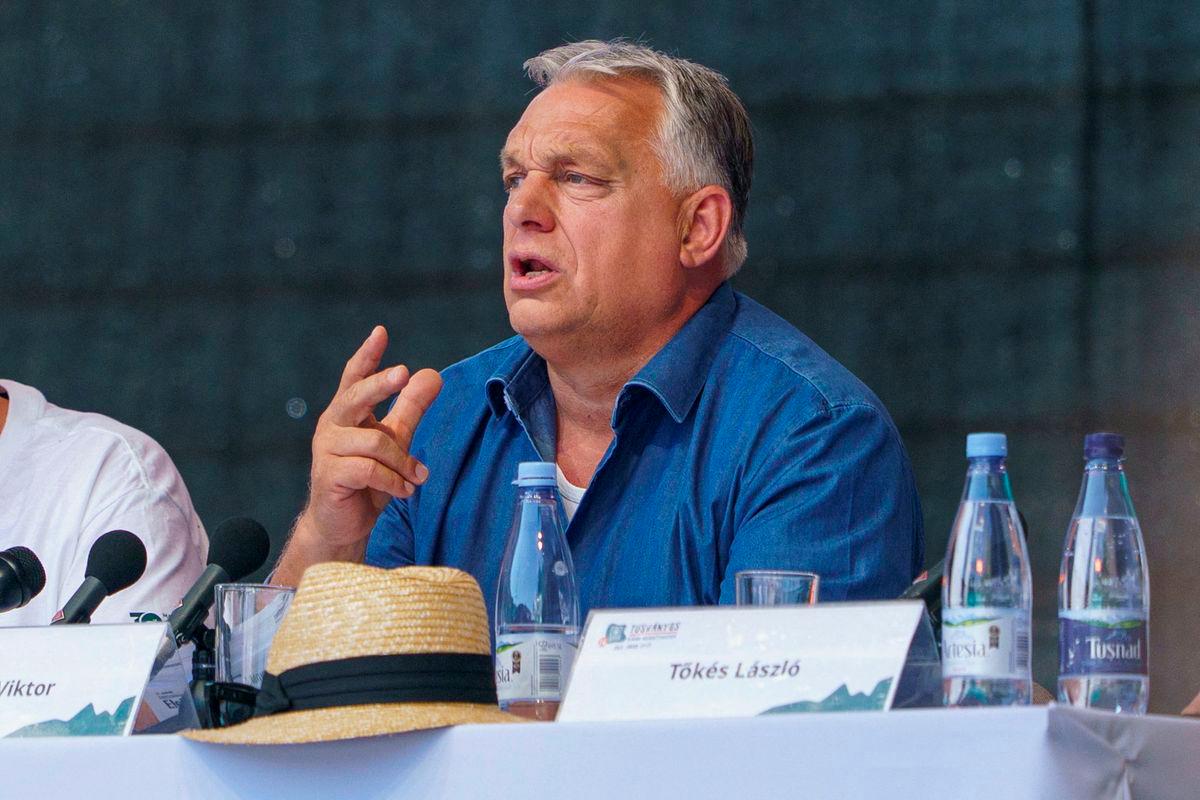News
Hungary’s Orban Pledges to Halt EU Budget Over Frozen Funds

Hungary’s Viktor Orban Issues Ultimatum on EU Budget: What’s at Stake?
Meta Description: Hungarian Prime Minister Viktor Orban has drawn a hard line on the European Union’s proposed budget, demanding the release of suspended funds. Will this move reshape Hungary’s future in the EU?
Hungary’s Standoff with the EU
Budapest is buzzing as Prime Minister Viktor Orban has made headlines once again with a bold stance against the European Union. In a recent speech delivered at a summer university in Romania, he stated that Hungary will not back the EU’s new seven-year budget unless the bloc releases all suspended funds designated for Hungary. This latest development underscores a persistent standoff between Hungary and Brussels over various contentious issues, ranging from migration policies to rule-of-law debates.
The Background: A Clash of Ideologies
Over the past 15 years, Orban has been a loud and proud critic of EU policies, especially regarding:
- Migration: Orban has advocated for strict border controls and has openly opposed EU refugee quotas.
- LGBTQ Rights: Recent legislation perceived as anti-LGBTQ has drawn ire from EU officials.
- Democratic Backsliding: Critics argue that Orban’s government has undermined democratic institutions in Hungary, leading to the suspension of billions of euros in EU funds.
These elements have sowed discord, resulting in a protracted rule-of-law dispute that has effectively stalled financial aid from Brussels.
The Budget Ultimatum
Orban pointedly remarked, “The approval of the new seven-year budget requires unanimity, and until we get the remaining (frozen) funds, there won’t be a new EU budget either.” This statement not only highlights Hungary’s pivotal role in EU budget negotiations but also reflects a strategy to leverage funding as a bargaining chip.
Accusations Against the EU
In his fiery speech, Orban didn’t shy away from depicting the EU as a meddling force. He criticized the bloc for its support of Ukraine amidst ongoing geopolitical tensions, alleging that EU leaders are conspiring to install a “pro-Ukraine and pro-Brussels government” in Hungary ahead of the national election next year.
This rhetoric not only rallies nationalist sentiments among his supporters but also casts the EU in a negative light, framing Hungary as an innocent victim of globalist ambitions. Orban’s claims resonate with many who feel disconnected from what they see as an elite-driven political landscape.
The Trade War Warning
Orban also took aim at the EU’s current leadership, suggesting they are steering the continent toward an unwinnable trade war. “The current leadership of the EU will always be the last to sign deals with the United States,” he asserted, calling for a change in the bloc’s governance. This remark comes at a time when strained relations between Europe and the U.S. have sparked discussions about economic competitiveness.
The Proposed 2 Trillion Euro Budget
At the heart of this struggle is the European Commission’s ambitious proposal for a €2 trillion budget for 2028 to 2034. This plan emphasizes economic competitiveness and defense, aiming to position the EU as a formidable player against global challenges.
Yet, Orban’s frustration boiled over as he accused “globalist bureaucrats” of intent on diverting European funds to Ukraine while neglecting local farmers and their livelihoods. This portrays him as a defender of national interests against an out-of-touch bureaucratic machine.
Opposition and Internal Politics
As tensions rise, Orban faces mounting opposition back home. In the upcoming 2026 elections, his ruling Fidesz party is challenged by the Tisza party, which has garnered significant traction in polls. Despite the tough political landscape, Orban claimed confidence, stating that internal data suggests Fidesz could win in 80 out of Hungary’s 106 constituencies if elections were held today.
What Does This Mean for Hungary and the EU?
The unfolding situation between Hungary and the EU has broad implications:
- Political Divisions: The friction signals underlying political and economic divisions within the EU, which could affect future policymaking.
- Economic Aid: Without resolving the standoff, crucial financial support may be indefinitely stalled, affecting Hungary’s economy.
- Populism on the Rise: Orban’s confrontational style resonates with populist movements across Europe, which could inspire similar tactics among other leaders.
Conclusion: A Crossroad for Hungary
As tensions escalate, both the EU and Hungary are at a critical juncture. With Orban resolutely holding his ground, it remains to be seen how this standoff will play out. Will Hungary receive the suspended funds it desperately needs, or will this impasse ignite more significant unrest within the EU’s political landscape?
For more insights into Hungary’s political climate and EU relations, check out our articles on The Rise of Populism in Europe and Understanding EU Budget Dynamics.
Feel free to explore respected sources like the European Commission for updates on budget proposals and the ongoing tug-of-war between member states.
-

 News16 hours ago
News16 hours agoTeenage US Citizen Records Brutal Arrest by Immigration Agents Who Told Him, ‘You Have No Rights’
-
News14 hours ago
Maltese Police Officers Participate in Operation in the Black Sea
-

 Business15 hours ago
Business15 hours agoNavigating the Economic Landscape: Key Insights from Today’s Business Headlines
-

 Entertainment15 hours ago
Entertainment15 hours agoCinematic Success: Fun Facts About Movies That Shaped the Film Industry
-

 News13 hours ago
News13 hours ago“Honoring Ukraine: A Tribute” (July 26, 2025) — dynamo.kiev.ua
-

 Business14 hours ago
Business14 hours agoNavigating the Shifting Sands: Key Global Economic Trends for 2024
-

 Business12 hours ago
Business12 hours agoThe Top 10 Business Opportunities to Watch in 2025
-

 Entertainment14 hours ago
Entertainment14 hours agoBehind the Magic: Unveiling the Secrets of Iconic Film Productions
